Passionate persuasion
Greetings!
I type the
words 'Mottisfont Abbey' dozens of times every week; it is, after all, the name
to the National Trust estate that is home to one of the most iconic and
beautiful stretches of the River Test with which I have a very special and
longstanding connection. However, I rarely visit the Abbey itself. But last
week, with a houseful of bored visitors, I put right an absence of at least
five years.
|
|
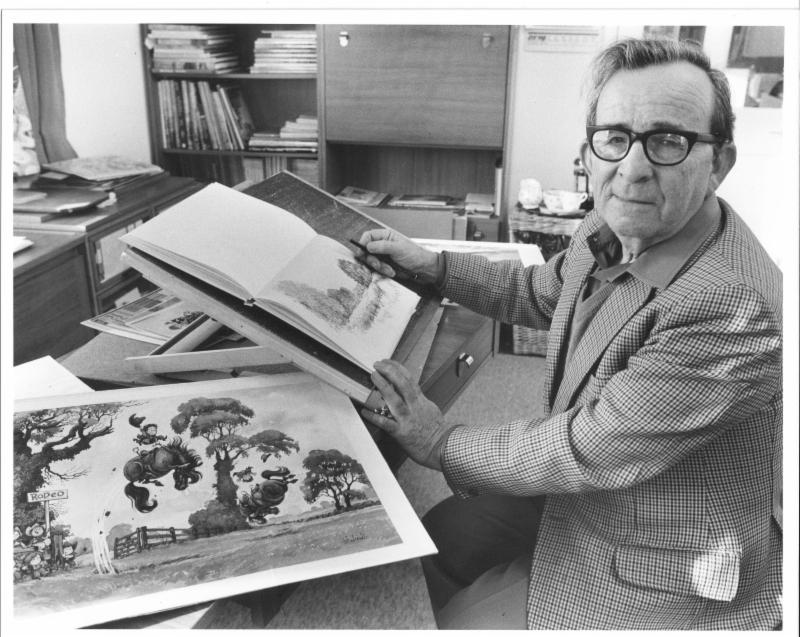 |
|
|
Norman Thelwell
|
Of course I failed to warn
my American entourage of the one most obvious thing about Mottisfont Abbey: it
in no way, shape or form looks like an abbey.
It is, essentially, a
stately home though something of a small one, the house a melange of architectural
styles dating back to the 1500's when the current mansion was build around an
abbey rendered obsolete by the Reformation. It makes for something of a rather
odd building inside. I forget the name of the guy from TV's Grand Designs but he'd
eviscerate the layout of possibly one of Britain's earliest and longest lasting
church conversions.
That said, architectural niceties aside, you get a lot for your admission fee. There is the magnificent rose garden, but don't expect much before June. There is the 'font' of Mottisfont, a crystal clear springhead of chalkstream water. There is a walk along the river, home to trout of mind-boggling size, which have fled our beats for the easy life of bread and crisps.
The house itself is
interesting rather than awesome, though the Whistler Room, the triumph of tromphe l'oeil painted by
Rex Whistler in 1939 took the eye of my party for longer than I could stand so
I left them to it finding myself following the signs to the Thelwell: Laughter and Landscapes
exhibition tucked up on the third floor.
|
|
 |
|
|
Artist proof cover for the Compleat Tangler
|
Norman Thelwell. I hadn't
thought of that name in years. The cartoonist who gently lampooned the Pony
Club set of ill-mannered children, overwrought parents and recalcitrant ponies
on a mission to turn the innocent hobby of horse riding into a battle of wills.
Anyone with a horse-mad sibling will recall the Thelwell books and birthday
cards as staple gifts from aunts and grandparents. Thelwell, as far as I can
divine, didn't much care for riding but he was a passionate fly fisher living
from the 1970's to his death in 2004 in Timsbury village, between Stockbridge
and Romsey, where a carrier of the River Test flowed through his garden.
I am not sure that his depiction of our breed in the Compleat Tangler has done much for our cause other than stereotype us as bumbling, ineffectual fools. Maybe he is not that wrong? He definitely had an eye for the absurd, encouraged no doubt by his years as a Punch cartoonist where he was something of an early environmentalist in the 1950's.
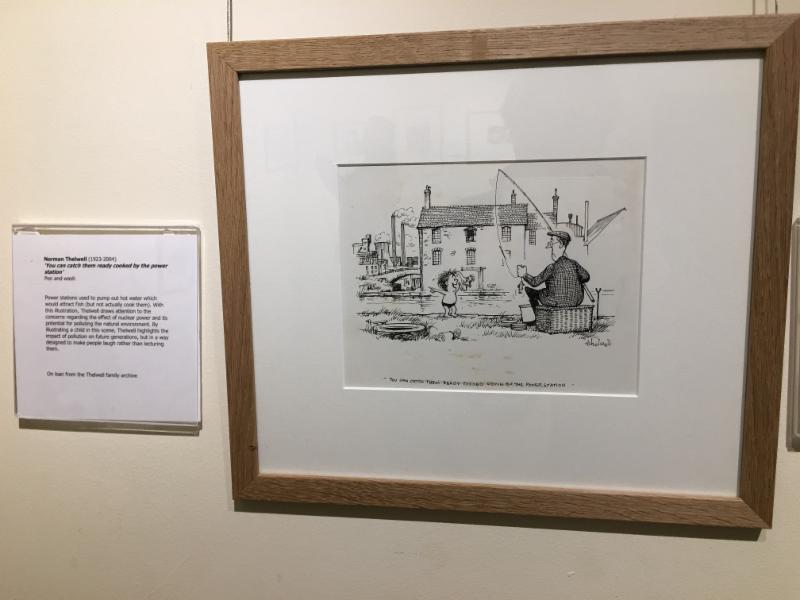
There is a cartoon of a harried
man, brandishing a piece of paper, rushing into the office of a colleague which
is piled high with similar papers. 'It's another memo from J.B.' he says,
'about the paper shortage ...'.
The cartoon (opposite) of
the child saying to the angler, 'You can catch them ready cooked down by the
power station,' reflects the debate when the first nuclear power stations were
mooted.
There was definitely an interesting hinterland to the life of Norman Thelwell who sold over 2 million books. He truly loved the natural world, seeking to protect it by way of passionate persuasion with the gentle prod of humour rather than that of sanctimonious lecture.
If you have a spare hour the
exhibition is worth a visit. It runs until April 22nd at Mottisfont
Abbey.
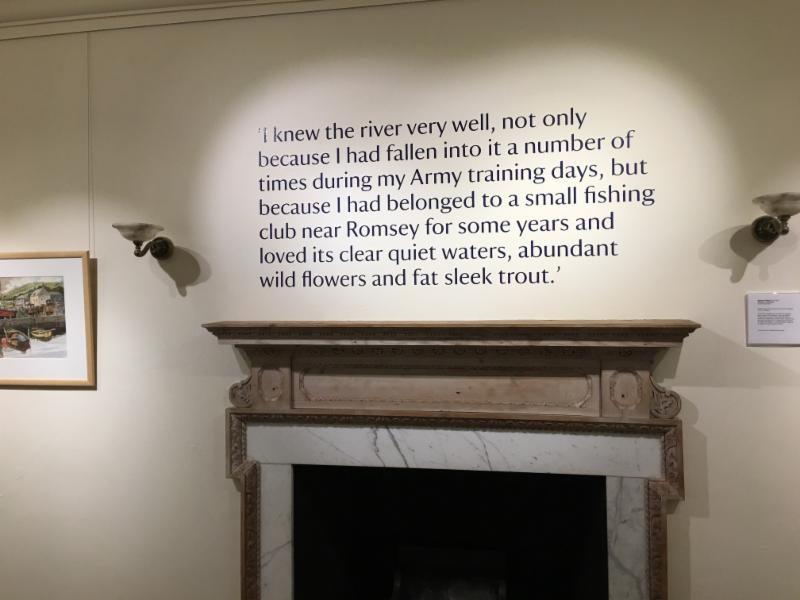 |
|
Thelwell describing how he came to live on the River Test
|
BBC
Countryfile on my otters
I am
guessing that there are not many of you who haven't, planned or otherwise,
watched an episode of Flog It! the antiques show hosted by Paul Martin.
|
|
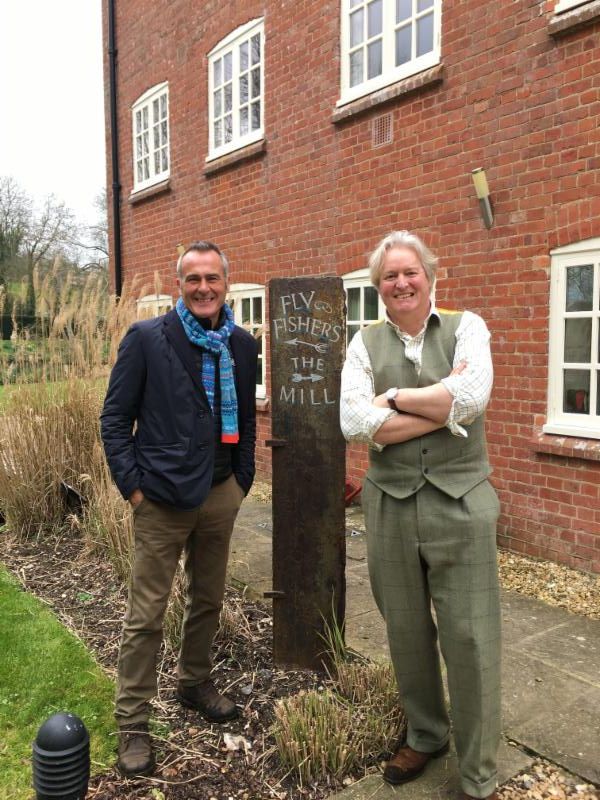 |
|
|
Paul Martin with me last
week at Nether Wallop Mill
|
It is such a ubiquitous
staple of the TV schedules that you might be surprised to hear that the final
programme was filmed last year. But with 1,300 shows recorded over the past 18
years I think it is reasonable to assume you'll be seeing it on a channel near
you for many years to come. In fact Paul tells me the filming came to an end
when the W1A executives discovered that old repeats were getting more viewers
than the new shows!
I met Paul last week when he
came to Nether Wallop Mill to film an episode for the spring edition of BBC
Countryfile Diaries about my otters, with a twist on fishing. It seems that an
earlier edition of the show had taken some flak from the carp fishing community
who, for perfectly understandable reasons, are less keen on the otter revival
than others.
Really the difficulty is
that the stillwater revolution, for both trout and coarse species, took place
in an otter vacuum. At the very time that the otter population was in steep
decline, coming dangerously close to extinction in large parts of the country,
just about every body of viable water was being turned into some kind of
commercial fishery or other. No thought was given to furry predators because
well, they weren't around.
The otter renaissance is
generally regarded as one of the few ecological success stories of the past
three decades. Proof that, despite lobbying by special interest groups, using
poisonous chemicals in the countryside does exactly what you might expect - it
kills things. It is no small irony that the very revival of the otters since
the chemical ban has been helped by the lakes that grew up in their absence; a
ready and easy food supply.
So my job for Countryfile
was to explain how I cope with otter predation without resorting to deterrents
such as fencing. What do I do? Well, nothing. In the end you have to bend to
the will of Mother Nature. Accept that if you create something so utterly
unnatural as an lake stocked with fish to a number and size beyond native
reproduction then you'll become, whether you like it or not, the local
walk-in-whenever-you-like-and-eat-as-much-as-you-like food bank.
The BBC Countryfile Spring
Diary series will be aired in the week starting April 29th. I will
let you know the time and date of the show in due course.
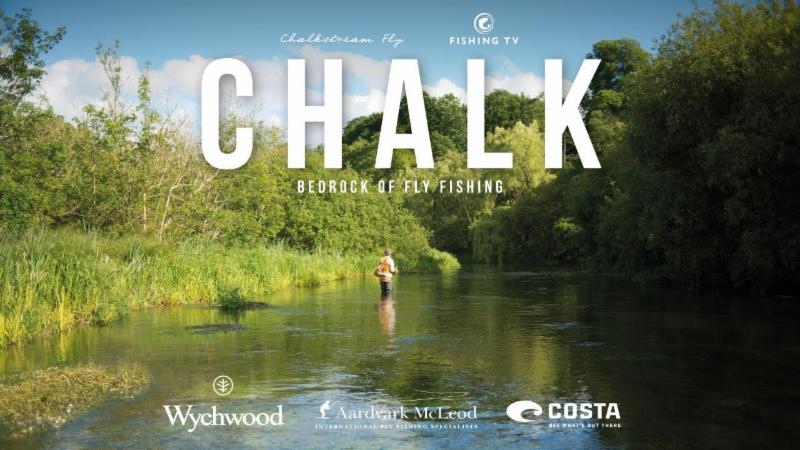 CHALK easier
to watch
CHALK easier
to watch
I know some
of you struggled with the token wallet system operated by Fishing TV, the
distributors of CHALK. Good news - it is gone! You can now watch CHALK with
regular pay-per-view.
There are two options: pay
£3.99 for unlimited access for 72 hours or pay £6.99 for unlimited access
forever. Click on this link to watch the film or see the
trailer.
If you'd like to see the
latest projects by filmmakers Chris Cooper and Leo Cinicolo visit their
web site.
Your own
record grayling?
I asked
last time around how old grayling lived to and I'm thankful for Shaun Leonard
of the Wild Trout Trust for providing the answer.
|
|
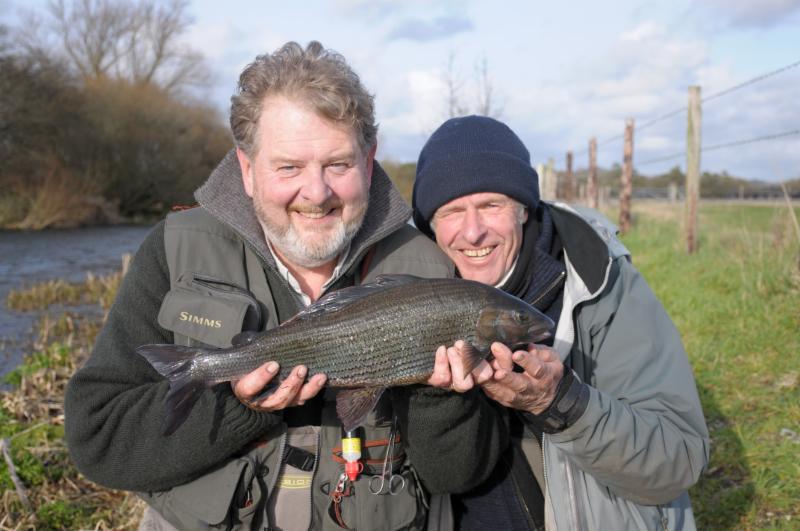 |
|
|
It could be you!
|
He has pointed me in the
direction of the Grayling Research Trust Practical Guide which, based on
individuals that have been captured year after year with electro fishing
surveys, suggests that it is around 9 years. Shaun is also confident that,
bearing in mind the side of his dorsal fin, our record fish is a boy.
Before we completely forget
about grayling for a few months as they do their breeding thing a few dates for
your diary:
John Bailey at Ilsington
John can't promise another
record but he'll be back in the autumn and winter for more of his guided days
on the River Frome.
October 25/26 and February
21/22
The cost is £325 for one day
or £595 for two days.
Introduction to Grayling
Fishing
Our very own grayling ace
Bob Preston will be running a one day course at Bullington Manor at the start
of the season. Bob regularly racks up days when he catches 50+ grayling so
you'll learn a thing or two!
October 15
The cost is £195 for the
day.
To book call Diane on 01264
781988 or diane@fishingbreaks.co.uk
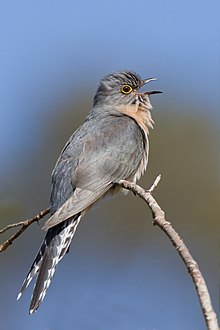 The Quiz
The Quiz
More
questions to hopefully entertain and enlighten. As ever it is just for fun with
the answers at the bottom of the Newsletter.
1) Memo is an abbreviation of
what word?
2) In what country was April
Fools' Day was traditionally called Huntigowk Day?
3) In which year was Britain's
first nuclear power station opened?
Have a good weekend.
Best wishes,
Simon Cooper simon@fishingbreaks.co.uk
Founder & Managing Director
Answers:
1)
Memorandum
2)
Scotland. A
corruption of Hunt the Gowk, the gowk being Scots for a cuckoo or a
foolish person.
3)
1956


No comments:
Post a Comment